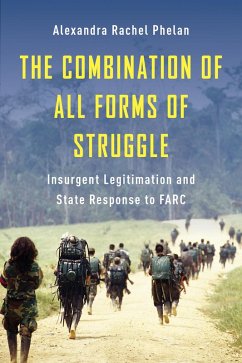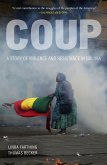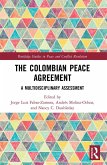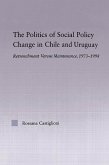Over the course of a decades-long armed conflict, the Colombian state took a variety of approaches toward its insurgent opponent, the Revolutionary Armed Forces of Colombia (FARC). Successive governments swung between pursuing negotiations and responding with military counterinsurgency measures. FARC, for its part, proclaimed its commitment to "the combination of all forms of struggle": seeking legitimation through both political and military means.
Investigating the relationship between FARC and the Colombian state from the outbreak of conflict in 1964 to the signing of the final peace agreement in 2016, Alexandra Rachel Phelan offers new insight into the dynamics of insurgencies. In such conflicts, both states and insurgents seek to assert their legitimacy, which has crucial implications for any prospective resolution. Phelan examines how FARC adopted different means of legitimation as part of its overall political and military strategy and how these strategies influenced government responses. She argues that the case of Colombia demonstrates that insurgents are more likely to engage in negotiations when the state recognizes their political legitimacy than when it demands their defeat. During a protracted conflict, when it is unclear that the state can win by military strength alone, offering incentives for political settlements can minimize-and perhaps even end-fighting. Drawing on interviews with former and active FARC leaders and Colombian government officials, as well as access to key primary documents, this book sheds new light on the Colombian conflict and provides rich theoretical understanding of the role of legitimacy in counterinsurgency more broadly.
Investigating the relationship between FARC and the Colombian state from the outbreak of conflict in 1964 to the signing of the final peace agreement in 2016, Alexandra Rachel Phelan offers new insight into the dynamics of insurgencies. In such conflicts, both states and insurgents seek to assert their legitimacy, which has crucial implications for any prospective resolution. Phelan examines how FARC adopted different means of legitimation as part of its overall political and military strategy and how these strategies influenced government responses. She argues that the case of Colombia demonstrates that insurgents are more likely to engage in negotiations when the state recognizes their political legitimacy than when it demands their defeat. During a protracted conflict, when it is unclear that the state can win by military strength alone, offering incentives for political settlements can minimize-and perhaps even end-fighting. Drawing on interviews with former and active FARC leaders and Colombian government officials, as well as access to key primary documents, this book sheds new light on the Colombian conflict and provides rich theoretical understanding of the role of legitimacy in counterinsurgency more broadly.
Dieser Download kann aus rechtlichen Gründen nur mit Rechnungsadresse in A, D ausgeliefert werden.









